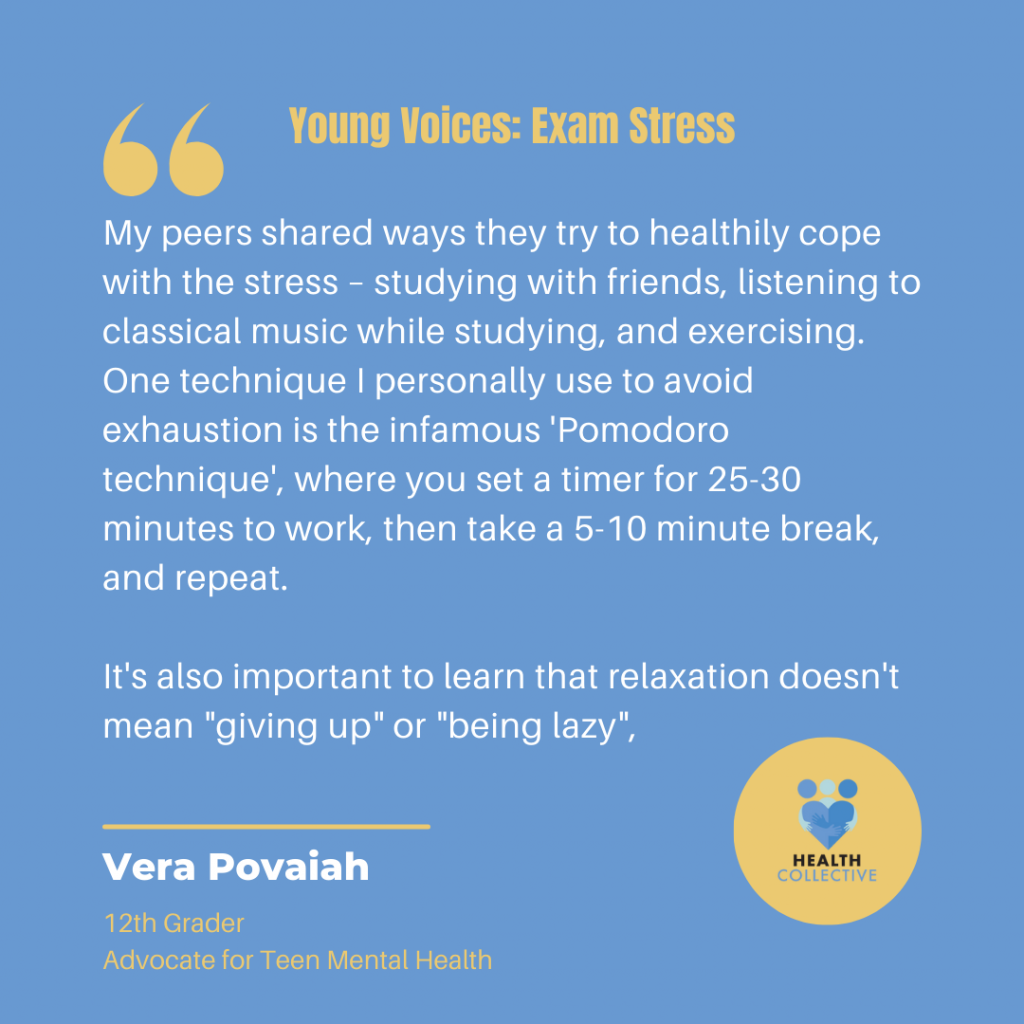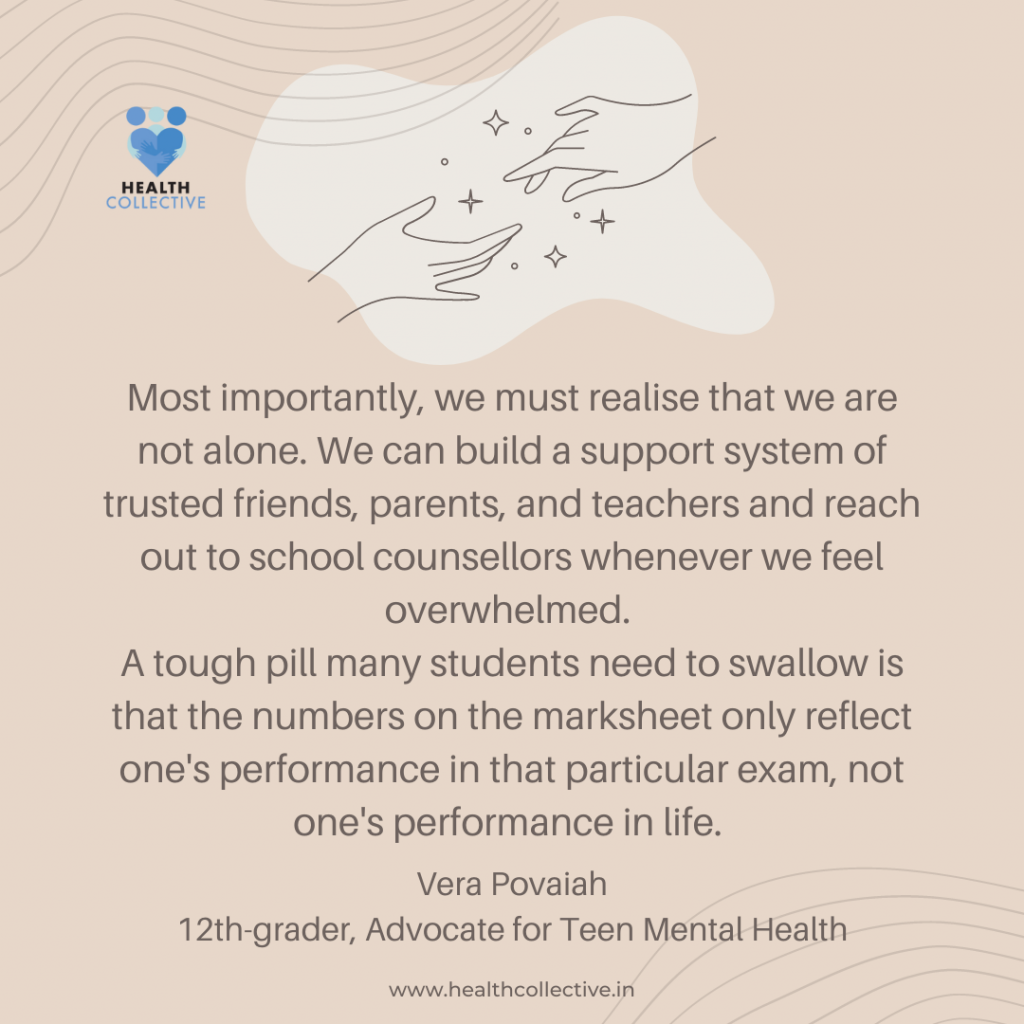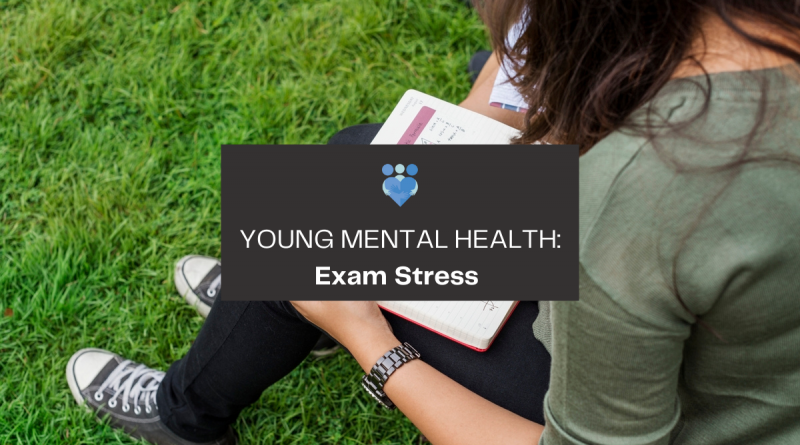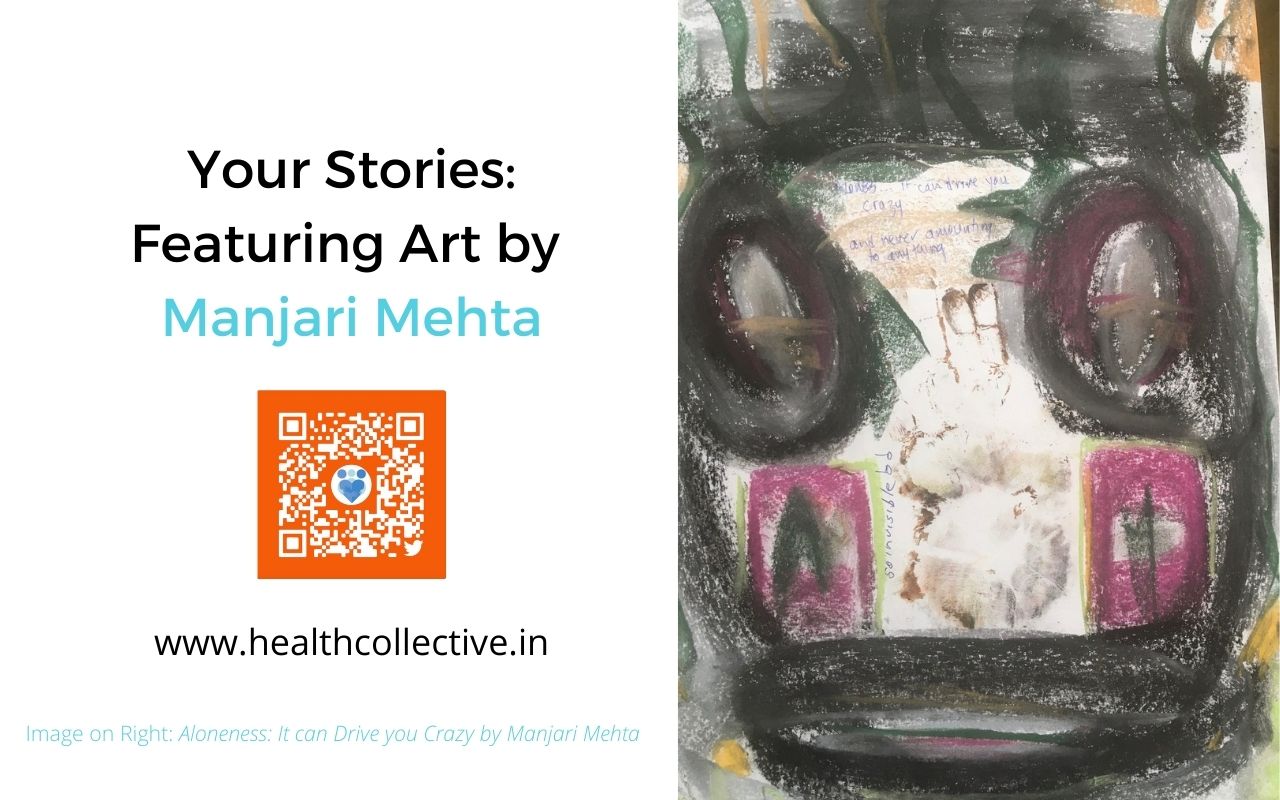Young Voices: Exam Stress is Getting Out of Hand and How to Cope
By Vera Povaiah
The onset of summer means the end of exams – a time nearly everyone associates with immense stress. Though exam stress is known for being painful, it isn’t usually all bad. Mild stress can motivate students, keeping us focused, and even pushing us to work harder.
The problem is that increased levels of stress are becoming frightfully common among us students – which is harmful to our mental and physical health, plus our academic performance. According to a survey by NCERT, as reported by Hindustan Times 81% of respondents considered studies, exams and results “major causes of anxiety”.
A 12th grader I spoke to for The Health Collective shared, “The fear created for exams and the pressure of performing well in them is, in most cases, scarier than the exam itself, irrespective of how hard the examination is.”
But why is that so? What is it about exams that can frighten students to such an extent? And the bigger question might be: what led us to create an education system that induces such panic in students?
First of all, as many of you know, we live in a culture that puts extreme pressure on students to perform well. Sadly, for most of us, ‘well’ is not defined as the best of our abilities, it means better than our peers’ abilities.
“Life is a race, agar aage nahi badhoge to peeche chut jaoge” – sound familiar?
While competition is intended to motivate students, it’s often counterproductive. Many, including myself, often find themselves struggling for that one position of first place, afraid that anything less would disappoint their teachers, parents, peers, and themselves. “First place” is associated with promising rewards – better college prospects, scholarship opportunities, and validation from society. An 11th grader told me, “Academic competition is fatally frightening, as a bunch of numbers written in red on the top of your paper are capable of making or breaking your image amongst peers, and even society as a greater whole.”
It’s evident that what shows up in the results of the examination holds so much weight in our culture. Furthermore, a majority of college prospects do depend on ‘good marks’, leading students to believe that a single paper can make or break their entire future.
This past year, I’ve seen my peers slave over textbooks, question papers, and notes at the crack of dawn. I’ve seen them give up their personal and social lives for exams and even pay thousands of rupees to coaching centres in exchange for the promise of a better future. Their families expect a return on their investment, so the possibility of ‘failure’ is out of the question. Students simply see no option but to excel academically. If they don’t then they will have to face the painful “log kya kahenge?” This pressure to perform well and excel in exams has become a pervasive aspect of our culture, one that requires critical re-evaluation to ensure that it does not lead to harm students’ well-being more than it already has.
Thus every exam season, I witness my peers’ mental health plummet. What’s worse is that this is seen as normal, or as a sign of a working education system trying to “nurture students”. Exam anxiety causes students to lose sleep – or give up on it entirely. Some cope by undereating or binge eating and some break into tears at the prospect of even giving the paper. Physically, experiencing headaches, stomachaches, muscle pain or dizziness is unfortunately common.
This is not healthy, and a ‘promising future’ cannot come at the price of sacrificing our health.
Alas, exam anxiety can be detrimental to the exams themselves – studies show that excessive stress can impair focus, motivation, and memory retention… all crucial components of studying. Therefore, anxiety can lead to poor academic performance, which leads to more anxiety, which leads to poorer academic performance, thus constituting a perfect vicious cycle.
I spoke to a 10th grader who shared her experience:
“One time I had this one exam I had spent hours slaving over, working over, ignoring all other subjects for it. The stress of scoring full and making a good impression and a billion other things got to me at that moment as I blanked out and forgot everything I had spent months learning. The trembling, crying, nausea, feeling it all fade away, the disappointment on my teacher’s face. All of it combined into a big red failure in my file. How on earth are you expected to cope when a factor effectively out of your control results in you being labelled as ‘incompetent’, and in some extreme cases, a ‘failure’? And all this persistent pondering is slowly reducing my own academic abilities, as I get distracted further away from my own studies. A vicious cycle at its best.”
Well, then how do we deal with this epidemic of exam anxiety that arises every 6-8 months?

My peers shared ways they try to healthily cope with the stress – studying with friends, listening to classical music while studying, and exercising.
One technique I personally use to avoid exhaustion is the infamous ‘Pomodoro technique’, where you set a timer for 25-30 minutes to work, then take a 5-10 minute break, and repeat. Effective study techniques and planning studying step by step can help break down a daunting challenge into simpler, doable tasks.
It’s also important to learn that relaxation doesn’t mean “giving up” or “being lazy”, and we should all try to incorporate time for self-care in our study schedules to maintain our health and our grades. Utilising deep breathing, meditation, journaling, or engaging in a hobby can make us better, more grounded students.
Most importantly, we must realise that we are not alone. We can build a support system of trusted friends, parents, and teachers and reach out to school counsellors whenever we feel overwhelmed. A tough pill many students need to swallow is that the numbers on the marksheet only reflect one’s performance in that particular exam, not one’s performance in life. Those numbers are simply questions answered right/wrong and do not, and should not ever gauge someone’s worth as a person. Once we can grasp this concept, we must try to revisit our priorities as a society and bring teen mental health into the spotlight.

About the Author: Vera Povaiah is a 12th-grader and a passionate advocate for teen mental health aspiring to create a change in schools. She is also a student of psychology, a proud feminist, and an avid reader.



